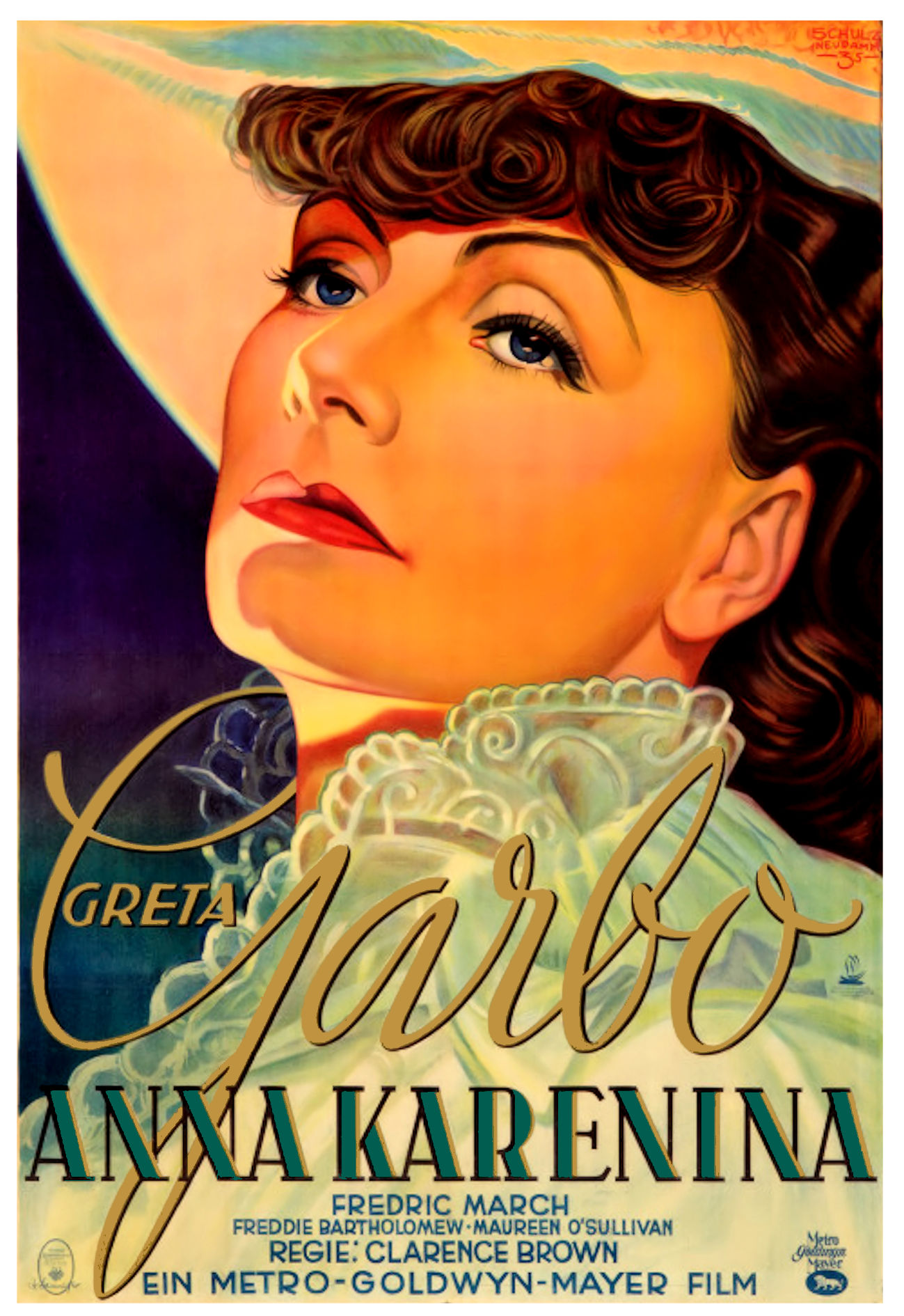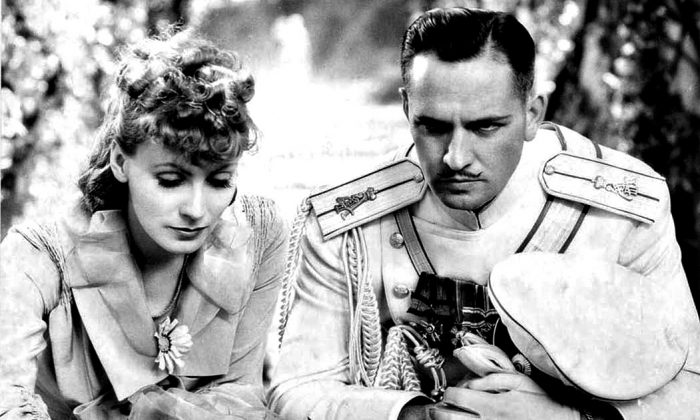 ANNA KARENINA (1935)
ANNA KARENINA (1935)It is rare when an actress gets to recreate a film role she is already famous for, but then there were few stars like Greta Garbo. Anna Karenina is a remake of her silent film, Love, only this time it stays true to both the time Leo Tolstoy's novel is set and its bleak ending. Sumptuous and mostly well-acted, Anna Karenina is a feast visually and quite moving.
Count Vronsky (Fredric March) meets and quickly falls in love with the beautiful Anna Karenina (Garbo), wife of government official Alexei Karenin (Basil Rathbone) and mother to Sergei (Freddie Bartholomew). Soon, Anna falls in love with Vronsky, but their scandalous relationship causes even normally blase Czarist Russia to be horrified. At a terrible sacrifice to Anna, she runs off with Vronsky to Italy, sacrificing her marriage and her son.
Soon, however, both Anna and Vronsky yearn to return to Mother Russia but for different reasons. Anna wants desperately to see her son again. Vronsky does not care one bit about Sergei, but he does care to jump back into military service with an impending war. They make their return and attempt to go back into Russian high society but find they cannot break through. Eventually, Vronsky seems to forget about Anna in his hunt for wartime glory, even starting to entertain Princess Sorokina (Mary Forbes). As Karenin has not just forbidden Anna to see Sergei again but made sure she never does, Anna finds life hopeless.
Anna Karenina commits suicide by throwing herself onto a moving train, leaving Vronsky with pangs of regret for his rejection.
If anything, Anna Karenina is LAVISH with all caps. This is a very lush film visually, never skimping on the elegance to decadence of Imperial Russia to where it's only missing a few Faberge eggs. The film never lets up on being as opulent as possible, starting with a very lavish dinner for Vronsky's fellow soldiers.
Only in the MGM Dream Factory could bar hopping be so posh.
It also presents the title character with equal elegance: Garbo emerging from train steam as almost a literal goddess, so rapturously beautiful to make Vronsky stop cold and stare in disbelief.
Director Clarence Brown draws good to great performances out of his cast, and yet sometimes it feels as if Garbo is doing the heavy lifting for almost all her castmates. It's a strange thing that while Fredric March gave a "good" performance, it was simultaneously too studied. The best way to explain is it's that it he "acted" the part of the lovestruck Vronsky but could never truly display the passion he had for Anna. There didn't seem to be mad, passionate ardor from him. It was a bit technical: correct but not genuine, as if March was acting but aware that it was acting.
Rathbone at first appeared to be so sneering that one would feel Anna should have left Karenin sooner. However, near the midpoint, as he attempts to warn his wife about how gossip is starting to spread about her and Vronsky, Rathbone allows a bit of hesitancy, hurt and even vulnerability, afraid of losing Anna. He also attempts to keep his mix of hurt and rage in check when lying to Sergei that his mother was dead. Perhaps to Karenin, she was, but you sensed he genuinely did not want to hurt his son. Freddie Bartholomew at first too seemed a bit whiny, but by his tearful goodbye it was hard not to be moved.
The last scene between Sergei, Karenin and Anna is brilliant. You have a tearful Sergei, pleading with his mother not to leave, Anna's distress over knowing what she is sacrificing, and Karenin's need for honor. The blending of all these elements makes for fascinating viewing.
The film blends the Anna/Vronsky affair with that of two other love stories: Anna's brother Stiva (Reginald Owen) and his own wandering eye to the distress of Stiva's wife Dolly (Phoebe Foster) and the blossoming romance of Kitty (Maureen O'Sullivan) to Levin (Gyles Isham, the only actor whom I thought overdid his performance). It is Anna who helps reconcile Stiva and Dolly, but in the end Stiva lectures his sister on her own lack of discretion. For her part, Dolly sees Anna as free, but Garbo's silent performance shows that she is anything but.
It also makes clear, without having to say so, that Stiva's indiscretions are merely physical and thus, forgivable to Russian society, while Anna's indiscretions are emotional and thus, unforgivable. The fact that Stiva is a man and Anna a woman probably play a role too.
Anna Karenina stays to the original ending versus Love's optional happy ending, but again it is a credit to Brown and screenwriters Clemens Dane and Salka Viertel that her suicide was clear without being brutal. With Herbert Slothart's score and Brown's visuals, we see and understand enough to know the desperate state Anna was in. The concluding coda where Vronsky speaks of his regrets is fine but felt a bit attached.
On the whole, with Greta Garbo's excellent performance (with only Basil Rathbone coming close to matching her) and some impressive visuals, this Anna Karenina truly stands as both a lavish film for the eyes and a moving tale of romance for the heart.
DECISION: A-
ANNA KARENINA ADAPTATIONS
Anna Karenina: The Conclusions


No comments:
Post a Comment
Views are always welcome, but I would ask that no vulgarity be used. Any posts that contain foul language or are bigoted in any way will not be posted.
Thank you.